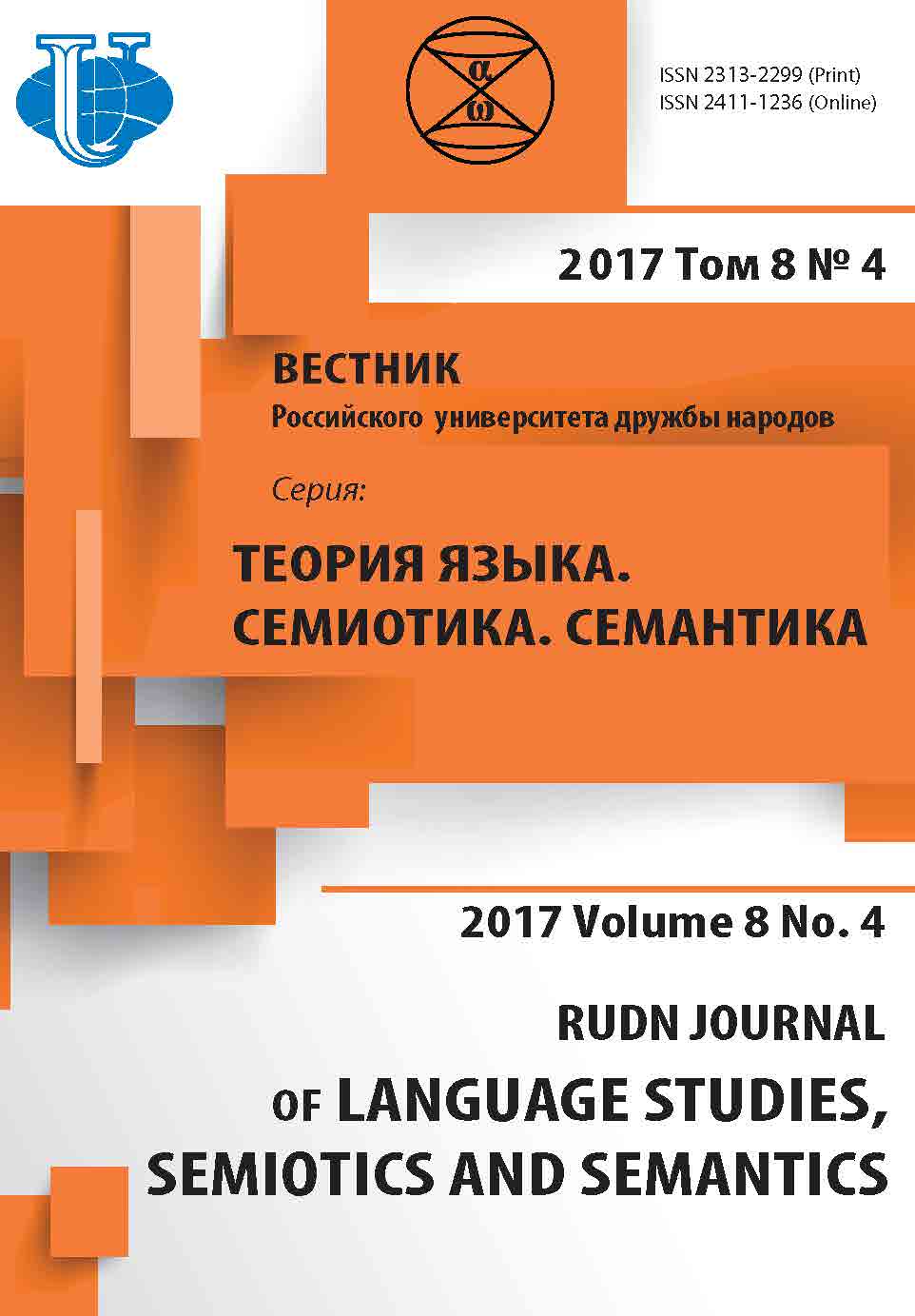LANGUAGE SITUATION AND LANGUAGE POLICY IN NIGERIA
- Authors: Borisova A.A1, Ilina N.Y.2
-
Affiliations:
- Kutafin Moscow State Law University
- RUDN University
- Issue: Vol 8, No 4 (2017)
- Pages: 1146-1160
- Section: ARTICLES
- URL: https://journals.rudn.ru/semiotics-semantics/article/view/17993
- DOI: https://doi.org/10.22363/2313-2299-2017-8-4-1146-1160
- ID: 17993
Cite item
Full Text
Abstract
The article deals with the language situation and language policy in Nigeria which is one of the most polyethnic African states. Sociolinguistic situation in the country is very complex because there are more than 250 ethnic groups in Nigeria which speak 521 languages. English is the official language in the country and serves Nigerian peoples’ way of life. There are discussions about the development of local indigenous languages in a very complicated ethnic and political situation in Nigeria. The English language in Nigeria interacts with numerous indigenous languages and Nigerian Pidgin English. Nigerian Pidgin Eng-lish is a marker of identity and solidarity between the various ethnic groups. There is polarization of com-municative functions of English and Nigerian Pidgin. English has official functions and is on a higher social level and Nigerian Pidgin is on a lower social level and has everyday functions. English plays a major role in introducing Nigerians to modern knowledge, creating new types of thinking and contributing to the development of national self-awareness.
About the authors
Anna A Borisova
Kutafin Moscow State Law University
Author for correspondence.
Email: anna.alex.borisova@gmail.com
Borisova Anna Aleksandrovna, lecturer, the Department of Foreign Languages, Kutafin Moscow State University (MSAL), lecturer, the Department of Foreign Languages, Faculty of Philology, Peoples’ Friendship University of Russia; scientific interests: contact variantology of English and Spanish Languages, African literary discourse in English and Spanish
Sadovaya-Kudrinskaya str., 9, Moscow, Russia, 123995Nadezhda Yu Ilina
RUDN University
Email: ilinadezhda@yandex.ru
Ilina Nadezhda Yur’evna, PhD, associate professor, Head of English Department № 2, Kutafin Moscow State University (MSAL), associate professor, the Department of Foreign Languages, Faculty of Philology, Peoples’ Friendship University of Russia; scientific interests: contact variantology of English language, West African creative literature in English, discourse analysis
10-2 А Miklukho-Maklaya, Moscow, Russia, 117198References
- Germanova, N.N. (2008). Introduction to linguistics. Language in sociocultural environme nt. M oscow: IPK MGLU “REMA”. (In Russ.).
- Golubina, K.V. & Salygina E.V. (2013). Effective language policy: principles, criteria, evalua tion in struments). Moscow: FGBOY VPO MGLU. (In Russ.).
- Ismagilova, R.N. (2013). Languages In Nigeria. (Informational and monographic edition). Moscow: IAfrRAN. (In Russ.).
- Katagoshina, I.T. (2013). Nigeria In Education in Africa. Moscow: IAfrRAN. (In Russ.). pp. 22—26.
- Klokov, V.T. (2000). The French language in Africa. Saratov: Izdatelstvo Saratovskogo universiteta. (In Russ).
- Kochakova, N.B. (1981). Exterior and interior factors of Nigeria’s peoples’ development. The modern and co ntemporary history of Nigeria. Moscow: Glavnaya redaktsiya vostochnoy literature. (In Russ.).
- Petruk, B.G. (2013). State system In Nigeria. (Informational and monographic edition). Moscow: IAfrRAN. (In Russ).
- Shveitser, A.D. (2012). Modern Sociolinguistics. Moscow: Knijny dom “Librokom”. (In Russ.).
- Balogun, T.A. (2013). In Defense of Nigerian Pidgin, Journal of Languages and Culture. V ol. 4(5). July, рр. 90—98.
- Igboanusi, H.A. (2002). Dictionary of Nigerian English Usage. Ibadan.
Supplementary files












